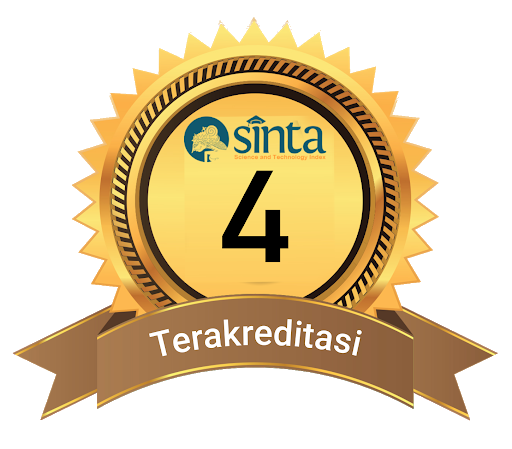PENGARUH KEAKTIFAN ORGANISASI DAN MOTIVASI BELAJAR TERHADAP PRESTASI BELAJAR PENGURUS UNIT KEGIATAN MAHASISWA UNIVERSITAS NEGERI YOGYAKARTA PERIODE 2019-2020
DOI:
https://doi.org/10.21831/jim.v16i2.34768Keywords:
keaktifan berorganisasi, motivasi belajar, prestasi belajarAbstract
Penelitian ini bertujuan untuk mengetahui pengaruh Keaktifan Organisasi terhadap Prestasi Belajar Pengurus Unit Kegiatan Mahasiswa Universitas Negeri Yogyakarta Periode 2019-2020. Penelitian ini merupakan penelitian asosiatif kausal dengan pendekatan kuantitatif. Teknik pemgambilan sampel dalam penelitian ini menggunakan simple random sampling. Sampel dalam penelitian adalah mahasiswa pengurus UKM UNY periode 2019 sebanyak 153 mahasiswa. Pengumpulan data penelitian menggunakan kuesioner dan wawancara terhadap responden. Pengolahan data penelitian menggunakan software SPSS 22 dengan analisis regresi linier berganda. Hasil dari penelitian pada taraf signifikansi 5% adalah sebagai berikut: 1) Keaktifan Organisasi berpengaruh positif dan signifikan terhadap Prestasi Belajar. 2) Motivasi Belajar berpengaruh positif dan signifikan terhadap Prestasi Belajar. 3) Keaktifan Organisasi dan Motivasi Belajar secara simultan berpengaruh terhadap Prestasi BelajarReferences
Arikunto, S. (2009). Dasar-dasar Evaluasi Pendidikan (edisi revisi). Jakarta: Bumi Aksara.
Azwar, S. (1996). Tes Prestasi: Fungsi dan pengembangan pengukuran prestasi belajar. Yogyakarta: Pustaka Pelajar.
Daruyani, S., Wilandari, Y., & Yasin, H. (2013). Faktor-faktor yang Mempengaruhi Indeks Prestasi Mahasiswa FSM Universitas Diponegoro Semester Pertama dengan Metode Logistik Biner. In PROSIDING SEMINAR NASIONAL STATISTIKA UNIVERSITAS DIPONEGORO 2013 (pp. 185-194). Jurusan Statistika Undip.
Ghozali, Imam. (2011). Aplikasi Analisis Multivariate dengan Program IBM SPSS. Semarang: Badan penerbitan Universitas Diponegoro.
Hakam, M., Sudarno, S., & Hoyyi, A. (2015). Analisis jalur terhadap faktor-faktor yang mempengaruhi indeks prestasi kumulatif (IPK) mahasiswa statistika UNDIP. Jurnal Gaussian, 4(1), 61-70.
Hakim, T. (2005). Belajar secara efektif. Niaga Swadaya.
Ius, Jun. (2017). Pentingnya Organisasi Bagi Mahasiswa. Diakses tanggal 19 Agustus 2019 dari https://www.academia.edu/12829860/Artikel_Pentingnya_organisasi_bagi_mahasiswa.
Keller, J.M. (1987). Strategies for Stimulating The Motivation to learn. Wiley Online Library.
Muhadjir, N. (2000). Ilmu Pendidikan dan Perubahan Sosial.
Yogyakarta: Raka Sarasin.
Munir, B. (2012). Six Dimensions Organization. Yogyakarta: Graha Ilmu.
Pemerintah Indonesia. (1998). Keputusan Menteri Pendidikan dan Kebudayaan Republik Indonesia Nomor 155/U/1998 Tentang Pedoman Umum Organisasi Kemahasiswaan di Perguruan Tinggi Menteri Pendidikan dan Kebudayaan. Jakarta : Sekretariat Negara.
Pratiwi, S. S. (2017). Pengaruh Keaktifan Mahasiswa Dalam Organisasi Dan Motivasi Belajar Terhadap Prestasi Belajar Mahasiswa Fakultas Ekonomi Universitas Negeri Yogyakarta. Jurnal Pendidikan dan Ekonomi, 6(1), 54-64.
Saragih, J.H. dan Valentina T.D. (2015). Hubungan antara kecerdasan emosional dengan prestasi akademik pada mahasiswa aktivis organisasi kemahasiswaan di lingkungan Universitas Udayana. Udayana, Junal Psikologi.
Sardiman.(1992).Interaksi dan Motivasi Belajar Mengajar. Jakarta:Rajawali.
Sursuyobroto.(2002).Proses Belajar Mengajar di Sekolah.Jakarta:Rineka Cipta.
Syah, M.(2010).Psikologi Pendidikan.Bandung:PT Remaja Rosdakarya.
Syah, Muhibbin.(1999). Psikologi Belajar. Jakarta:PT Rajagrafindo Persada.
Triana, E. (2011). Pengaruh keaktifan Organisasi dan kebiasaan belajar terhadap prestasi belajar mahasiswa jurusan pendidikan geografi angkatan 2008 dan 2009 Universitas Negeri Yogyakarta. Yogyakarta:Universitas Negeri Yogyakarta. hlm, 25-70.
Umar, H. (2002). Metode riset bisnis: panduan mahasiswa untuk melaksanakan riset dilengkapi contoh proposal dan hasil riset bidang manajemen dan akuntansi. Gramedia Pustaka Utama.
Universitas Negeri Yogyakarta. (2017). Penghargaan Prestasi Mahasiswa dalam Rangka Memperingati Hari Pendidikan Nasional Tahun 2017 dan Dies Natalis ke-53 Universitas Negeri Yogyakarta.
Uno, Hamzah B. (2006). Teori Motivasi Belajar & Pengukurannya.Jakarta:PT Bumi Aksara.
Wulandari, R. (2011). Hubungan Gaya Belajar dengan Prestasi Belajar Mahasiswa Semester IV Program Study D IV Kebidanan Universitas Sebelas Maret. Jurnal Kesehatan Kusuma Husada
Downloads
Published
How to Cite
Issue
Section
License
An author who publishes in the journal "Jurnal Ilmu Manajemen (JIM)" agrees to the following terms:
Author retains the copyright and grants the journal the right of first publication of the work simultaneously licensed under the Creative Commons Attribution-ShareAlike 4.0 License that allows others to share the work with an acknowledgement of the work's authorship and initial publication in this journal.
Author is able to enter into separate, additional contractual arrangements for the non-exclusive distribution of the journal's published version of the work (e.g., post it to an institutional repository or publish it in a book) with the acknowledgement of its initial publication in this journal.
Author is permitted and encouraged to post his/her work online (e.g., in institutional repositories or on their website) prior to and during the submission process, as it can lead to productive exchanges, as well as earlier and greater citation of the published work (See The Effect of Open Access).
All materials in this site are protected by the law. It is prohibited to quote a part of or all of this website contents for commercial purposes without the permission or consent of the editors.
If anyone finds one article or more in this journal violate or potentially violate one's copyrights, please report to us through e-mail of Principle Contact.
Legal-formal aspects of accessing any information and manuscript in this journal website refer to the provision of license Creative Commons Attribution-Share Alike (CC BY-SA). Read more about the Creative Commons Attribution-ShareAlike 4.0 Licence here: https://creativecommons.org/licenses/by-sa/4.0/.
All information available in 'Jurnal Ilmu Ekonomi (JIM)' is academic in nature. 'Jurnal Ilmu Ekonomi (JIM)' is not responsible for loss due to the abuse of information in the website.


.png)

